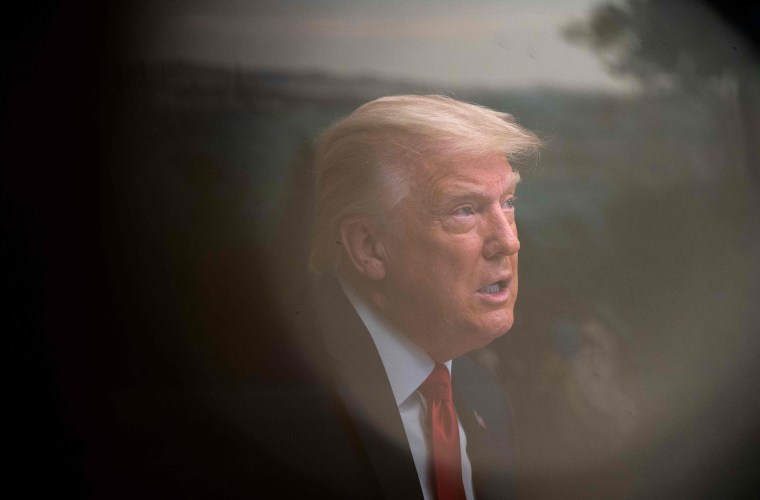On its most basic level, justice means fairness and equity. This is something parents' attempts to teach their children from a young age. If you do something right, you should be rewarded. If you do something wrong, you should be punished. If both you and your friend do the same thing right, you should both be rewarded equally. These are the foundational tenets of a civilized society.
Presidential pardons are supposed to act as a failsafe when the federal criminal justice system malfunctions.
But we do not live in that society, as President Donald Trump and his administration have just proven once again. Trump’s recent round of pardons — coupled with the Department of Justice’s sprint to execute federal death row inmates before Inauguration Day — show his administration’s deep subversion of justice.
Presidential pardons are supposed to act as a fail-safe when the federal criminal justice system malfunctions. As Alexander Hamilton noted in the “Federalist Papers,” “without an easy access to exceptions in favor of unfortunate guilt, justice would wear a countenance too sanguinary and cruel.”
The U.S. Constitution gives presidents almost unfettered pardon power. As long as a president steers clear of attempting to pardon a person in cases of impeachment, he is likely operating within his constitutional authority. Pardons can be given prospectively, meaning before a person is indicted or even charged with a crime. This is what happened in 1974, when President Gerald Ford prospectively pardoned President Richard Nixon shortly after his resignation.
And indeed, the modern history of presidential pardons is full of examples of presidents who provided a Get Out Of Jail Free card to friends, family members and donors. President Bill Clinton pardoned his half-brother, Roger Clinton and campaign donor Marc Rich. President George W. Bush granted clemency to the former chief of staff to Vice President Dick Cheney, Scooter Libby, after he was convicted of perjury and obstruction of justice.
Not to be outdone by his predecessors, the norm-breaking Trump has issued some truly norm-breaking pardons, including former national security adviser Michael Flynn, who was convicted of lying under oath to federal investigators about his conversation with a Russian diplomat.
Want more articles like this? Follow THINK on Instagram to get updates on the week's most important political analysis
But it turns out Trump’s earlier pardons were just a teaser of what was to come. Trump’s use of his presidential pardon power has stress-tested this constitutional provision. Far from supporting the criminal justice system when it has worked, he has undermined it. Indeed, his latest round is transparently transactional, having nothing to do with fairness or justice and everything to do with rewarding loyalists, allies, and almost inexplicably, war criminals and disgraced politicians. And he’s not done yet. (In a moment that may prove prescient, Founding Father George Mason warned that presidents “ought not to have the power of pardoning, because he may frequently pardon crimes which were advised by himself.”)
On Tuesday, Trump pardoned two people who pleaded guilty in former special counsel Robert Mueller’s investigation into possible coordination between the Trump campaign and the Russian government, three former members of Congress who engaged in public corruption, and U.S. government contractors who were convicted of killing numerous Iraqi civilians, among others. These are self-serving pardons, not pardons that serve justice.
On Wednesday, Trump pardoned a whole new list, including Roger Stone and Paul Manafort.
At the same time, Trump’s Department of Justice appears to be racing to execute federal death row inmates before Jan. 20, 2021. Why the rush? Because President-elect Joe Biden has pledged to push for legislation to end federal executions.
In July, the Trump administration ended a 17-year moratorium on federal executions. Ten people have been executed since the summer, and three more are scheduled to be executed before Biden’s inauguration. The Department of Justice is scheduled to implement more federal executions during Trump’s lame-duck period that in more than 100 years. For perspective, the federal government executed three people in the half-century before the moratorium went into effect in 2003. And for even more perspective, in 2020 the Trump administration oversaw the execution of more individuals than all 50 states combined.
This new round of federal executions occurs against the backdrop of a vigorous debate about whether or not the death penalty even serves justice at all.
The Trump administration’s unprecedented ramp-up of federal executions has led a number of U.S. senators to ask the Department of Justice’s watchdog agency to investigate. The senators wrote, “The reversal of long-standing DOJ policies and protocols for federal executions raise numerous questions about the fairness and application of these policies and protocols by the Trump Administration.”
This new round of federal executions occurs against the backdrop of a vigorous debate about whether or not the death penalty even serves justice at all. Plenty of critics argue that it is irredeemably racially and economically unjust. Given this debate, the government’s sudden rush to execute its own citizens feels particularly callous.
We are back to where we began, hoping for a society that rewards those that do good and punishes those who do harm. Trump’s corrosive use of the pardon power and his rush to execute death row inmates will cement his presidency as one of the most unjust in history.
Related:



